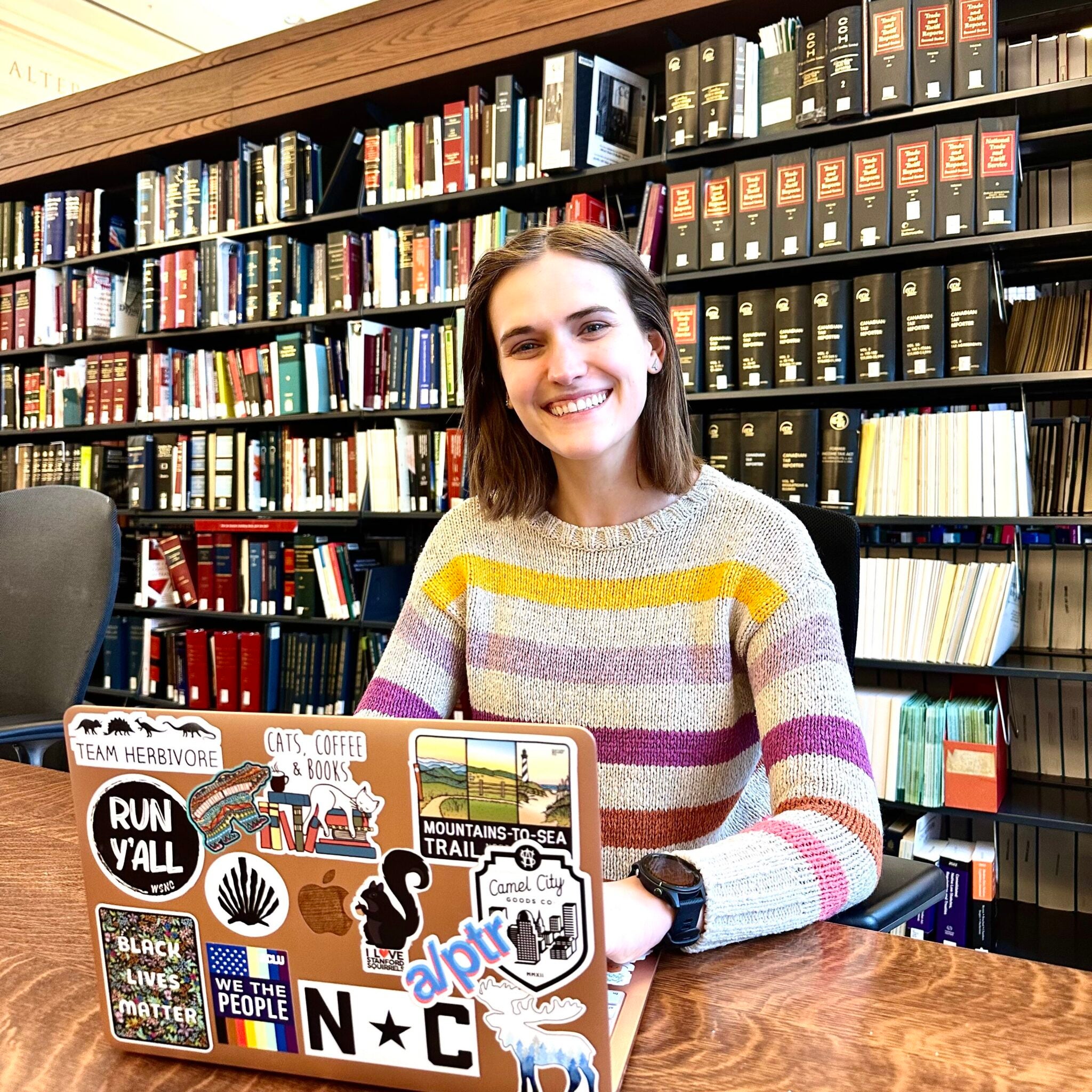By Lizzie Wallace ’24

As a native North Carolinian raised on vinegar-based barbeque sauce and purple state politics, I am constantly looking for ways to stay involved in the pro-democracy work going on in my home state. In the Democracy and Rule of Law Clinic, I was able to do just that. The clinic partners with Protect Democracy (PD), a nonprofit that is committed to strengthening our democratic institutions amidst a wave of anti-democratic trends at the state and federal levels. Through my work with PD, I learned from election law experts preparing for future fraught and contested elections, assisted in litigation against perpetrators of political violence, and dug into some of the most pressing concerns for North Carolina’s democracy.
After a conversation with one of my mentors and fellow North Carolinians at PD, Anne Tindall, I began to look into North Carolina statutes that might cause trouble in the upcoming 2024 elections. Neither the governor’s race nor the attorney general’s race will have an incumbent, and the election is sure to be tight, as they often are in the Tar Heel state. Thanks to § 163-182.13A, a statute enacted by Democratic legislators in 2004 to resolve a disputed school board election, North Carolina is the only state in the country that allows their state legislature to unilaterally determine the outcome of a contested state election without judicial review.
There are several reasons why such a provision should make you uneasy. First, according to the Princeton gerrymandering project, North Carolina is one of the most gerrymandered states in the country. As a result, our legislature does not reflect the will of most North Carolinians. Second, in the hotly contested 2016 gubernatorial race, incumbent Pat McCrory debated triggering this provision to throw the election to the state legislature, but decided it was going too far. After 2020 and the normalcy given to election denial, it’s unlikely such a calculation would stop another candidate from booting the election to their friendly legislature. Third, the Republican front runner for the governor’s race, Mark Robinson, is an avowed 2020 election denier (in addition to calling the LGBTQ+ community “filth” and advocating for Christian nationalism). North Carolina’s democracy is hanging by a thread, and it’s unlikely to hold.
Applying some of the skills I learned in my Democracy and Rule of Law Clinic Class, I worked with Anne to create a “power map” of North Carolina’s key players. We debated theories of change. Was there any hope of a legislative amendment given the partisan skew of the North Carolina legislature? Could we overcome standing hurdles and get this into court before the provision was triggered? Would the new makeup of the North Carolina Supreme Court, an elected body including the son of the Senate President Pro Tempore, change our calculations? There wasn’t a clear answer to any of these questions, but we both felt sure something had to be done.
My final clinic project was to present my findings to the PD team, full of brilliant attorneys, policy wonks, and skilled communications experts. After walking the team through my theories of change and the questions I had been grappling with, several of the PD team members started talking about the non-legal avenues to addressing this democracy loophole. They described a communications push to educate North Carolinians about this anti-democratic statute, making it so politically toxic that a politician wouldn’t dare touch it. After all, Republicans and Democrats alike should be outraged by the idea of the opposing party triggering a popular vote override.
I walked out of the meeting with a whole new perspective. I simply hadn’t considered the idea of a non-legal solution. My law school tunnel brain had zeroed in on litigation or legislation at the expense of considering other, potentially more potent, avenues of change. Thanks to the PD team’s diverse set of perspectives, we were able to brainstorm several out-of-the-box ideas.
Though § 163-182.13A still hasn’t been repealed, or effectively nullified by popular demand (yet), the PD team is still working on next steps to safeguard North Carolina’s democracy in 2024 and beyond. I’m missing the clinic this semester and the feeling of being close to the pulse of important, real change happening because of groups like Protect Democracy. But I sleep easier at night knowing that the team, along with a new clinic student in my place, is hard at work advocating for democracy and ensuring the people in my state and across the country have their voices heard and respected.
Filed in: Clinical Student Voices
Contact Office of Clinical and Pro Bono Programs
Website:
hls.harvard.edu/clinics
Email:
clinical@law.harvard.edu